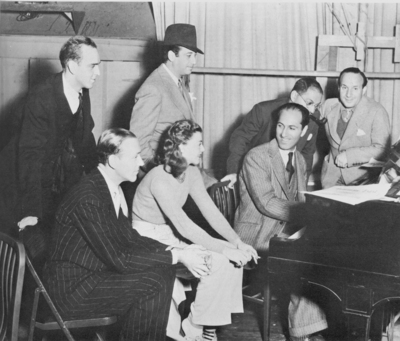
Alessandro Pigna (1883-1903)
Paying Homage To The Emperor
The great way of the Buddhas is profound, wondrous, inconceivable; how could its practice be easy? Have you not seen how the ancients gave up their bodies and lives, abandoned their countries, cities, and families, looking upon them as like shards of tile? After that they passed eons living alone in the mountains and forests, bodies and minds like dead trees; only then did they unite with the way. Then they could use mountains and rivers for words, raise the wind and rain for a tongue, explain the great void...
---Dogen
When we speak of being highly developed spiritually, this does not mean that we float in the air. In fact, the higher we go, the more we come down to earth.
---Chogyam Trungpa
You are seeing impeachment as a constitutional crisis. Impeachment is the cure for a constitutional crisis. Don't mistake the medicine for the disease. When you have a constitutional crisis, the founders are very clear. They said there is a way to deal with this. We don't have to have a war. We don't have to raise an army and go to Washington. We have procedures in place where we can sanction a president appropriately, do what needs to be done up to the point of removing him from office and continue the republic.
---John Nichols on Bill Moyers Journal, 7/13/07
I am not a constitutional scholar. I'm not a lawyer. I might think about citizenship quite a bit, but I may be pretty much an average American. As I understand the Constitution of the United States, that qualifies me to register concern...and to do so with forceful words.
Whatever our history has been and however we managed it, a republic was established so that each citizen could have a fair chance of a voice in the conduct of government which so affect our lives. My understanding of how that works is through a series of representative assemblies from local to state through federal levels.
At the top, in Washington, DC, we have the House of Representatives and the Senate. Between them, they legislate and debate and ultimately create laws and programs that enable us to live better lives...and maybe help people in other countries too. A system of public education was considered vital to maintain an informed electorate.
But at that point the Congress must turn over the created legislation to the Executive, whose job it is to put these examples and results of the will of the people into action. Sometimes, for one reason or another, the President doesn't think he can or should do it...and he tells Congress that. Maybe they can overrule his judgment or perhaps the Supreme Court must decide who is right, according to the Constitution.
Sometimes a great threat materializes and war must be declared. The Congress does this and thus hands to the President the awesome duties of Commander in Chief of the armed forces of the country. When this happens, everyone in the nation is expected to sacrifice aspects of life and liberty to enable the President to expedite the battle quickly. All Americans know this and we have done it.
There have been instances in the histories of all nations when supreme leaders have used occasions of warfare to increase personal and family fortunes. We expect such events in a dictatorship, but it is the worst thing to happen in a republic. Here, there is no question but that the money in the Treasury is ours, kept and spent in trust by freely elected representatives. If those people are stealing our money for themselves, they must be stopped or all fails.
There is a distinct possibility our Congress acted in the fever of haste when war powers were handed over to George Bush. Troops have been dispatched, and hundreds of thousands of people may be dead...or forever maimed. Everyone in the world knows the intelligence, in the full sense of that word, was "flawed" in developing the case for war. But now that we're there, the Commander says, we have to fix stuff before we leave. He's not in a terrible hurry on this because 1) he can pass the mess onto a successor, and 2) a lot of money is still to be made by private supporters.
It seems the nation and the Congress disagree with the President, but now how do we stop him? We gave him all these powers, matters of "executive privilege," and now he claims the national security he is pledged to maintain is endangered by any investigation. Even if the powers were granted under false pretenses, what, short of the Senate storming the White House, can be done? Or is it time to storm the White House?
Last Friday, the same day Bill Moyers gave a TV hour to consider impeaching both President and Vice President to remove them from office
http://www.pbs.org/moyers/journal/07132007/transcript4.html , former presidential counsel John Dean wrote an article about the problem of Harriet Miers. It is auspicious he did so, for he held precisely the same position as Ms. Miers in an administration that was brought to collapse under the scrutiny of Congress. Mr. Dean did appear before investigation when called and told the truth to the best of his ability. Ms. Miers refused to do so.
In his article John Dean considers what the Legislature can do next. Papers have been drawn up to charge Harriet Miers with contempt of Congress, conviction for which carries fines and jailtime. But those papers must be handed over to the Executive Branch for implementation, and it was the Executive who told Miers not to show up. What now?
The article is lengthy and detailed, but concludes with this scenario~~~
Congress Needs To Protect Its Powers: Only One Way It Can Do So
Marty Lederman has prepared a nice overview analysis of what happens when officials defy a congressional subpoena.
http://balkin.blogspot.com/2007/07/what-would-happen-if-administration.htmlLet's suppose that the House votes Miers in contempt, and the matter is sent to the U.S. Attorney. One can expect that no prosecution will be brought. During the Reagan years, the Justice Department ruled that even though the referral statute makes it the "duty" of the U.S. Attorney to take the matter to the grand jury, Congress cannot enforce that duty on the Executive Branch if the Executive Branch refuses to honor it. As noted, it would appear that under the most recent Justice memo on the subject, the White House will not permit the U.S. Attorney to prosecute the matter, and Congress has no power to overrule that by forcing the U.S. Attorney to go forward.
If the U.S. Attorney did go forward could criminal sanctions be imposed on a witness such as Harriet Miers who is (albeit willingly) following the orders of the president by refusing to honor a congressional subpoena? The issue raises serious Constitutional questions that have not been resolved by the Supreme Court. If the issue did reach the Court, how would the Court rule? Given its current conservative majority, the Justice Department and White House may be right if they have concluded that they can win before the Court, convincing at least five Justices to declare such criminal sanctions unconstitutional.
If the House votes Miers in contempt, they can also institute a civil legal action by seeking declaratory judgment from a federal court to compel enforcement of their subpoena. However, there is a growing body of law, coming from conservative jurists, calling for conflicts like this between the executive and legislative branch to be considered "political questions" that are improper for the federal courts to resolve. Thus, it seems likely that the Court might - citing the political-question doctrine - decline to take jurisdiction over this clash, thereby leaving the White House's status quo untouched. For the Bush Administration, the worse case scenario, as Lederman suggests, is simply that the courts will seek to force a political settlement.
Finally, if Miers is found in contempt, the House itself can take action against her at the bar of the House. (The Senate can similarly hold such proceedings.) Congress has the power to prosecute contumacious witnesses to require them to comply, and the Supreme Court has repeatedly reaffirmed this power. For example, in 1987, in Young v. U.S., Justice Antonin Scalia recognized "the narrow principle of necessity" or "self-defense" of the Congress in protecting its institutional prerogatives. Scalia said "the Legislative, Executive, and Judicial Branches must each possess those powers necessary to protect the functioning of its own processes, although those implicit powers may take a form that appears to be nonlegislative, nonexecutive, or nonjudicial, respectively."
http://caselaw.lp.findlaw.com/scripts/getcase.pl?navby=case&court=us&vol=481&page=820When all is said and done the only way Congress can protect its prerogatives is to undertake its own contempt proceedings. The parliamentary precedents of the House provide such procedures, by which Congress can effectively protect itself. There is no shortage of past instances where the Congress has held such trials. Readers may want to consult, for example, Hinds' Precedents
http://frwebgate.access.gpo.gov/cgi-bin/getdoc.cgi?dbname=hinds_prec_vol_iii&docid=f:hinds_liii.pdf and Canon's Precedents
http://frwebgate.access.gpo.gov/cgi-bin/getdoc.cgi?dbname=cannons_prec_vol_vi&docid=f:cannon_clxxxv.pdf . Unfortunately, however, this machinery has become a bit rusty, for these procedures have not been used since 1934.
Congress Must Avail Itself of Traditional Procedures to Compel Testimony and/or Punish Contempt
Given the clear attitude of conservative presidents, who are doing all within their power to make Congress irrelevant, Congress should turn to these underemployed precedents and put them back to work. The House and Senate Judiciary Committees should take the lead in reviving these procedures, and the Democrats' leadership should announce that they are embracing them.
If they do not, Fred Fielding has it right: Officials are absolutely immune from compelled Congressional testimony. Bush can simply tell Congress to stop sending subpoenas to his appointees. However, if Congress does engage in a little self-help at this crucial juncture, it can be sure that not only Harriet Miers, but also George Bush, will be forced to pay attention to congressional subpoenas - for the bottom line is that Congress will not need the cooperation of the other branches to enable it to conduct proper oversight.
http://writ.lp.findlaw.com/dean/20070713.html




